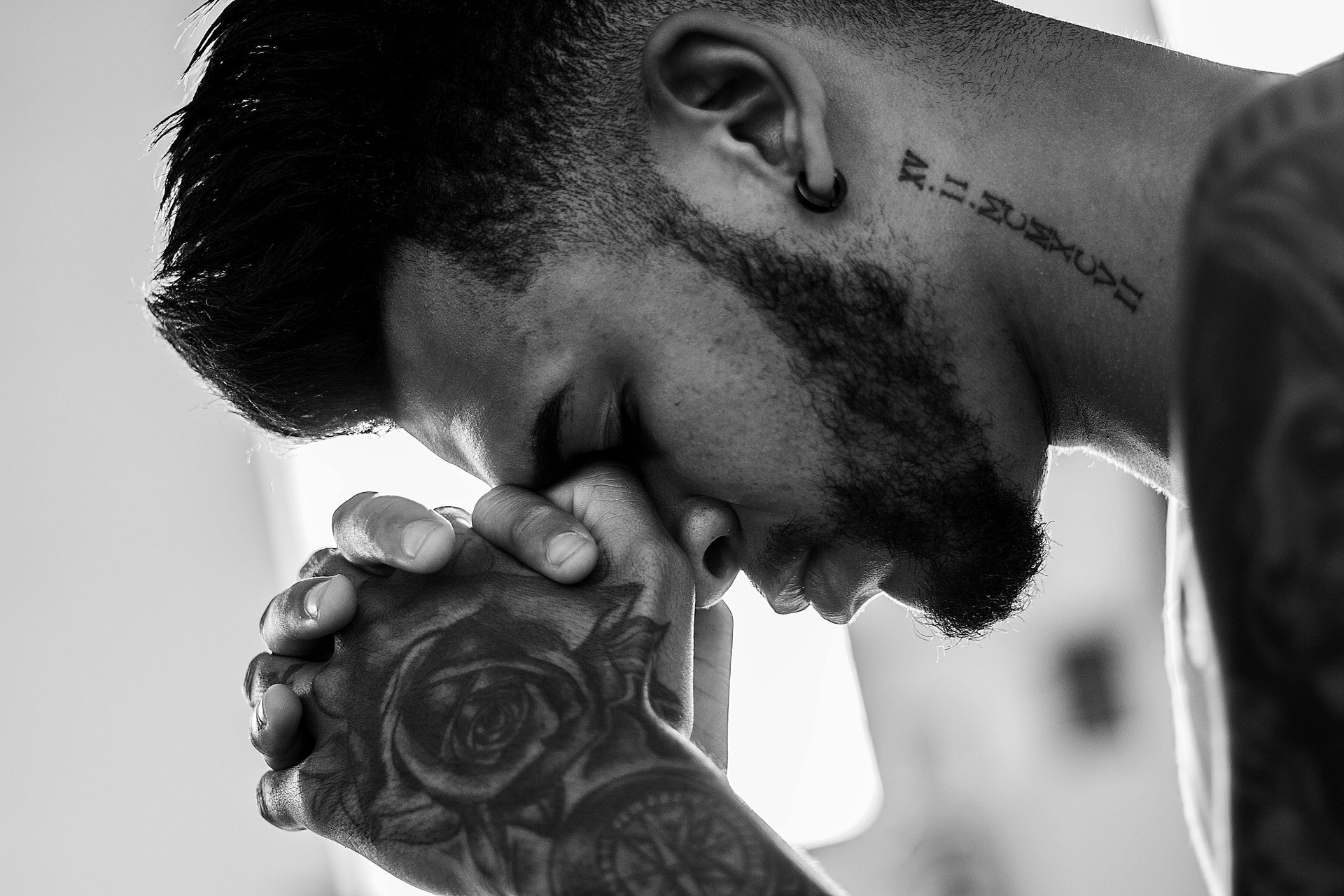Exploiting Your Child on Social Media
Written by Kaylee Da from Rectory School — Connecticut
Exploiting Your Child on Social Media: The New Face of Child Labour
Just like any other child who grew up watching family vlogs, I used to wish so badly that my family was famous. I envied popular YouTube families, their seemingly rich and perfect lives enriched by the adventures of their weekends. Compared to them, my family felt like a big group of introverts who were scared of the sun.
Now that I’m older, the thought of “family channels” actually scares me. Imagine being a small kid stuck with a camera 24/7 in your face, having your whole childhood filmed. This “trend” of filming your kids/family life online is becoming pervasive on social media.
Now, picture yourself as a social media star.
You have pictures of yourself in utero with ten thousand likes. You eventually have embarrassing baby photos of yourself all over your mom’s Instagram account. Oh, look! Videos of you crying as a kid, your first time in a car accident, and suddenly an eye infection, are all on social media platforms for friends and strangers to gawk at. I guess people must feel so bad for you, but your friends don’t. None of your classmates sympathize with sad emojis in the comment section; instead, they are all laughing at your first-grade picture.
So you ask: why was I not given a choice regarding whether I wanted my face all over Mom’s social media platforms?
Your mom replies, “You are role models. People look up to you. It’s a good thing.”
That was basically what the Clement Twins' mom replied when asked what she thought about her daughter’s presence on social media. Originally from Orange County, California, the two girls are known to be: “the most beautiful twins in the world” with their bubbly social media personalities. They’ve had thousands of photoshoots with top clothing brands, such as Old Navy, Nike, Disney, Target, etc. The Clement Twins have over two million followers on Instagram, and each sponsored post they upload could make them UP TO $10,000.
The two thirteen-year-old twins have been making money since they were very young, and from the continuous updates they post on every social media platform possible, it does not seem like their mom wants to stop. The twins even have their clothing brand, and everything and everywhere about the family is constantly being uploaded on YouTube. Their parents even thought it okay to start the twins in the modeling industry at the age of just six months old, but thankfully, the two girls only began appearing in the headlines after they blew away their seven candles.
A YouTube comment on a video criticizing parents posting their kids on social media argues that: "It's like the children are constantly followed by paparazzi but the paparazzi are their parents and the setting is their house.” We are all aware of how intrusive and invasive the paparazzi are to the livelihood and mortality of some of our more famous celebrities - Princess Diana, after all, was killed by them. The analogy here by this commenter is not a positive one.
Despite the online success of this family, there’s a feeling of unsteadiness and disturbance you get the more and more you research them. Especially considering how you can’t find any comments from viewers about how weird this is, and we all know how weird this really is. But in this generation, where not posting everything about your life on social media is considered atypical, the exposure of children’s lives is a new kind of normal. And it generates millions of dollars every single day for the kid-influencer industry. Yet, these twins are not the only exploited young people online.
The TikTok account @wren.eleanor is another example of child exploitation that doesn’t sit right with me and certainly shouldn’t be with you. While 17.1 million followers watching a toddler’s videos is already off-putting enough, some of the clips posted by her mother show her wearing revealing clothes, such as a bathing suit. And the most concerning video is that of her in a bath, with 58.4k saves on TikTok. Just a reminder folks - she is only a toddler! You can’t tell me that 17.1 million people only follow her because she acts silly and cute when some of the comments in her videos are from fully grown men. Creepy.
Unfortunately, it’s not just the Clement Twins and Wren Eleanor who face this problem. The exploitation of young people on social media is, sadly, everywhere! For instance, take the controversy behind the LaBrant families, SIS vs BROS, and the ACE family. Seeing so many young, innocent kids being exploited by their parents just because they want to be famous, is truly concerning.
Many kids who do grow up on these channels believe, like Karina from SIS vs. BROS, that their: “childhood [is] being ruined and taken away.” By the time they realize how far gone they are, they simply cannot do anything about it. Karina would eventually post multiple tiktoks about her parents exploiting her as a child to support themselves. It was later rumored that she was expelled from school for doing drugs and that she was smoking cigarettes at the tender age of sixteen. It is plausible to connect her early online celebrity status with the development of these dangerous habits.
There’s a reason why other celebrities, like Gigi and Bella Hadid, are sensitive when it comes to their kids on social media. Their mother Yolanda Hadid, a former supermodel herself, is known for her “bad parenting,” from controlling what her two daughters ate daily to paying for her daughter’s plastic surgery at the age of fourteen.
When interviewed by Vogue Magazine on March 15, 2022, Bella Hadid admitted, "I always ask myself, how did a girl with incredible insecurities, anxiety, depression, body image issues, eating issues, who hates to be touched, who has intense social anxiety—what was I doing getting into this business?" She was pushed there, of course, by her mother, but Bella is not willing to continue the cycle through her children, and neither is her sister. And as they say, under-protected daughters grow up to become overprotective moms, after all. After giving birth to her first newborn, Gigi was extremely strict in covering her daughter’s face when they were out in public as a measure to stop the influencer chain her mother had created.
Parents who exploit their children through social media for financial gain should be ashamed of themselves. The role of a parent is to nurture and protect your child as you negotiate with them the world outside the safety of the home, but these mom vloggers are doing the complete opposite.
According to the Harris Poll/ LEGO Survey, 29% of American kids between the ages of 8-12 aspire to be Vloggers/YouTubers. Perhaps this is because a selected few are making heaps of money. According to FORBES, seven-year-old Ryan from Ryan’s World (one of his nine channels in several different languages) reported earning 22 million dollars in two months. This makes us wonder how much of that money is going to be his in the end, though, or if his parents are spending it.
Decades ago, the phenomenon of child celebrity was typified through child actors - and over time, those actors were given rights against abuse of earnings. For instance, through the Coogan law, child actors’ salaries are protected so that 15 percent of what the child earns from work will be given to them when they reach adulthood. This ensures parents aren’t taking everything from their kids. The Coogan law also establishes rules for a limited time on screen, protecting young people from harmful working conditions. This brings me back to the idea of protecting kid influencers, who I believe to be the new faces of child actors. But unlike their predecessors, there are no “work hours,” and your “influencer” parents film you no matter where you are. At the minimum, there should be a law that kid influencers will receive a good percentage of their earnings when they reach adulthood. This will at least help soothe the idea of “free child labor” and benefit kids in the future.
There are some professionals, including Chris McCarty, who are trying to put an end to legal child exploitation. Her foundation: Quit Clicking Kids, promotes awareness around this issue in hopes of breaking our fascination with child influencers. In addition, there’s even House Bill 1627 in Washington State that allows children to delete any videos of themselves, and that ensures parents must funnel some earned profits into a separate savings account for their children to access when they come of age. Other US states are starting to follow suit: a bill was just passed in Illinois to give kid influencers almost the same rights as child actors. It is said that 50% percent of the earnings will be put in the kid’s trust fund, or kids over eighteen are allowed to take legal action against their parents. The bill was inspired by a teenager, Shreya, who also realized the concern and dangers of these kids. This shows how even US state legislators are trying to find ways to curb the issue, especially since the US Federal government hasn’t made its efforts to support this cause.
Despite research uncovering just how systemic this problem is, fixing it seems dire in the face of such little public recognition. In fact, the public seems to eat it up. It is only when these child social media influencers grow up and suffer that people start doing something, so why not fix it now before that suffering occurs?
Picture this: congrats! You’re social media famous! Your Instagram reels have an average of 8,000 views. You’re excited and happy and wish this fame will continue to expand. But the fickle heart of social media popularity is beginning to grow cold on you. You just uploaded a reel two hours ago. It should have been around 8,000 views by now. Oh no. It’s just 50. What? 50 views?
Why? Why did the video flop? Was I not good enough? I have to check the comments...
“Ew, why is she lip-syncing like that? Looks so dumb, lol.”
Okay. You’ve now changed, put on a prettier outfit, stopped lip-syncing, and also learned how to apply your makeup more effectively. You upload a new video, your heart pounding: “Am I good enough now?”
You start noticing yourself. You’re addicted to checking the comments; you’re going insane over the videos that don’t get many views, and you get agitated with the smallest imperfections. It is too late. What are you supposed to do next?
Fake your death? That sounds terrible! Or does it? It seems as though faking your death for some hungry influencers isn’t that bad considering the endless list of death prank videos that exist, or even worse, getting rebirthed with a fresh new music video. You heard that right! Isn’t that suspicious coming from Lil-Tay, who has a controversial background of bragging about how rich she is and getting exposed for lying to only disappear?
The psychological effects behind being a kid influencer abound. But one of them, perhaps the most detrimental, is being dependent on the comments from members of the general public. Growing up, you’re taught to be independent, that no matter what other people think, it doesn’t matter. It is none of their business. But when you’re young, you crave compliments for your developing, vulnerable self-esteem. And when you’re an influencer at a young age who depends on the comment section to feel pretty/confident, that’s something that’s going to be a struggle to get out of.
Many adult influencers have already experienced the harsh reality and don’t care about what others think of them. But kid influencers differ. They’re young and innocent - having a negative comment ruins their image.
This is harsh, considering how much pressure girls are put under to achieve unachievable beauty standards. Kid influencers will find it hard to love and truly know themselves if they have to put on a fake image online. This can create unrealistic beauty standards causing one of, in my opinion, the problems that can negatively impact everything: low self-esteem.
With a new wave of social media promoting strict and dangerous dieting habits, you’re going to start questioning yourself if eating “normal” is still considered “healthy.”
The Dove Self-Esteem Project and the University of West England conducted global research about mental health, and it was found that 9/10 girls follow someone on social media that makes them feel less beautiful, and ½ of the 1000 aged 10-17 girls believe that it has affected their mental health.
This problem brings me back to the Clement Twins. Nowadays, twins are encouraged to have different lives from each other. To have their different friends and personalities and to be individualized and not to be seen as one person is fundamental to their individual development. However, the identical Clement Twins have been taught exactly the opposite. In their posts, they look the same in matching outfits and make-up.
Even members of their own families are starting to question the impact that this incessant social media work conducted by their mothers will have on them. “I don’t know the other side of it, I don’t know how it’s going to influence them as they get older,” the grandmother of the Clement Twins worried.
These kids will grow up and carry those scars from their influencer-busy childhood. The inevitable psychological damage will be with them even as they get older.
"It's not a job because they're having fun!" The Clement Twins’ mom answered when being questioned about external concerns towards their kids, and this misinformation is why even more concerning stories are starting to be revealed.
A 31-year-old woman, Katie Sorensen, a “Mom Influencer,” accused real people of a kidnapping attempt to accrue 4 million views. Sadie Martinex, the victim of this accusation confirmed how: “She wanted a stronger following. She was looking for content, for her fame, and for her income. And at our expense.” This issue is becoming disastrously mishandled, especially as the federal government doesn’t seem willing to participate in finding a solution.
The pile of cases of hungry parent influencers continues to grow, and the victims of social media child labor are going to grow into traumatized adults who then duplicate the issue with their children.
This is why I’m not going to post my kids on social media for more views, more likes, and for the benefit of my income. And neither should you!



